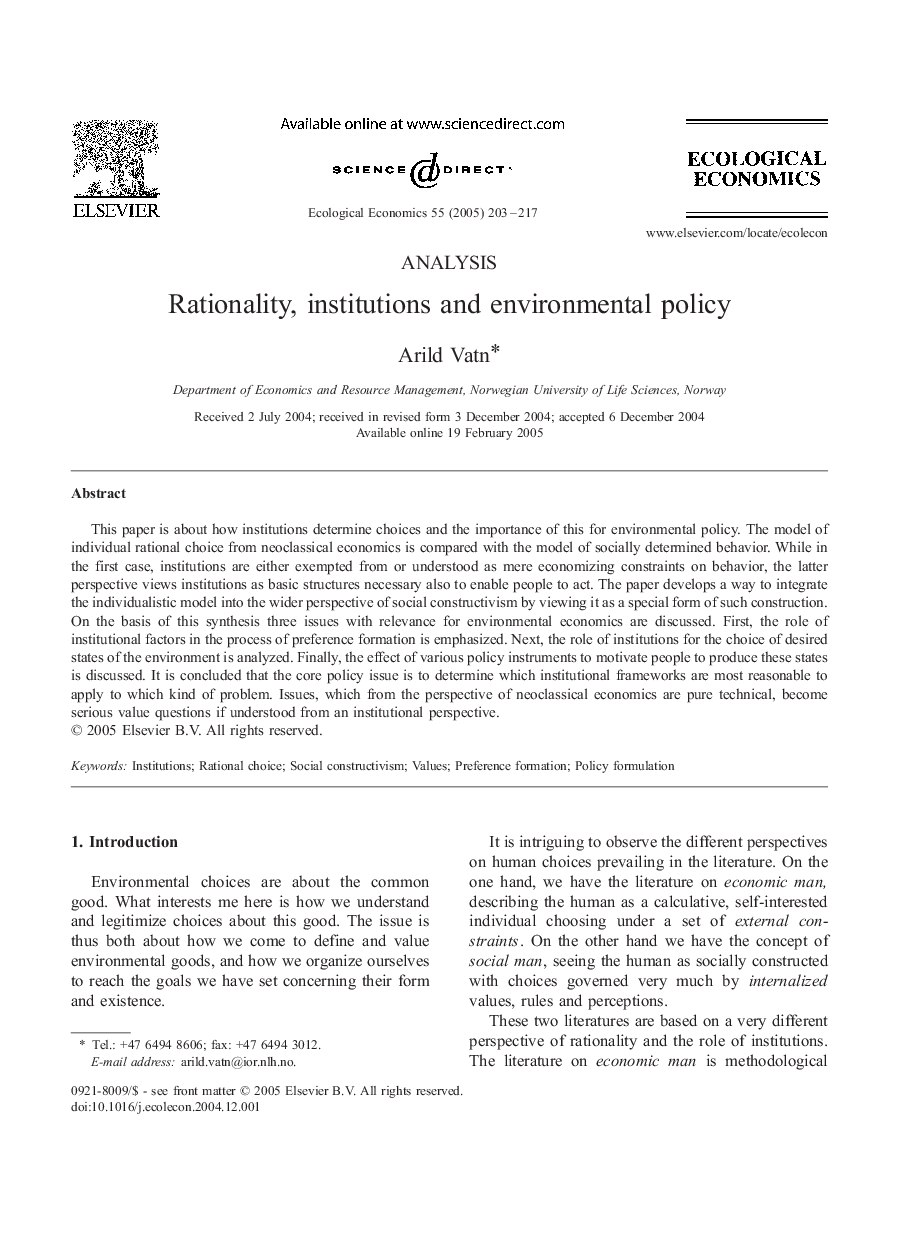| Article ID | Journal | Published Year | Pages | File Type |
|---|---|---|---|---|
| 9547752 | Ecological Economics | 2005 | 15 Pages |
Abstract
This paper is about how institutions determine choices and the importance of this for environmental policy. The model of individual rational choice from neoclassical economics is compared with the model of socially determined behavior. While in the first case, institutions are either exempted from or understood as mere economizing constraints on behavior, the latter perspective views institutions as basic structures necessary also to enable people to act. The paper develops a way to integrate the individualistic model into the wider perspective of social constructivism by viewing it as a special form of such construction. On the basis of this synthesis three issues with relevance for environmental economics are discussed. First, the role of institutional factors in the process of preference formation is emphasized. Next, the role of institutions for the choice of desired states of the environment is analyzed. Finally, the effect of various policy instruments to motivate people to produce these states is discussed. It is concluded that the core policy issue is to determine which institutional frameworks are most reasonable to apply to which kind of problem. Issues, which from the perspective of neoclassical economics are pure technical, become serious value questions if understood from an institutional perspective.
Keywords
Related Topics
Life Sciences
Agricultural and Biological Sciences
Ecology, Evolution, Behavior and Systematics
Authors
Arild Vatn,
